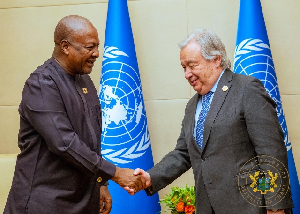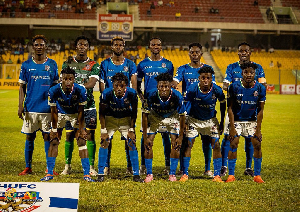Resumption of gas supply by the West Africa Pipeline Company (WAPCo) may be delayed as the company might need additional time to completely dry the pipeline to prevent corrosion, authorities of the gas company have told the B&FT.
The General Manager, Corporate Affairs, of the West Africa Gas Pipeline Company (WAPCo), Mrs. Harriet Wereko-Brobby, in an interview with the B&FT explained that the company is pushing the debris in the pipeline toward Takoradi and it will be emptied by April 30.
“We are pushing the debris out toward Takoradi and by April 30 it will come out. It [the pipeline] will be partially dry. We will then measure the moisture content and will be able to determine how long to further dry it to prevent corrosion. It could be a week or two; it could be more or less,” Mrs. Brobbey said.
It will be recalled that the company had earlier assured that the cleaning and drying process would be completed by the end of this month for eventual resumption of gas supply in May.
At the moment, the replacement of damaged pipes and testing joints to ensure there are no leakages has been completed. What is left is the Pipeline Integrity Gauge (PIG) - equipment used to push water and debris out of the pipe - as well as using hot-air to dry the pipeline to transport gas.
On August 28, 2012, part of the approximately 656-kilometre-long West African Gas Pipeline was damaged when a crash between Togolese Navy and a third-party vessel resulted in the vessel dragging its anchor into the pipeline and ripping it apart. The two ends of the pipeline were dragged about 10 and 15 metres off the original position.
The recipient countries have since been without gas, leading to power-rationing in Ghana as a result of the halt in the supply of gas to the 200megawatt Asogli Power Plant, which relies solely on gas for electricity production.
Ghana receives about 123 million cubic feet of gas a day from WAPCo, making the country the largest recipient in the four-nation gas project. Benin and Togo receive five million cubic feet a day each of the gas that comes from Nigeria.
The restoration of WAPCo’s natural-gas supply upon completion of the de-silting process is expected to bring back the 200megawatts of power lost through shut-down of the Asogli Power Plant.
Ghana’s own gas input into the generation of electricity is not expected until September, when the Gas Company will have laid the pipeline to carry gas onshore from the Jubilee oil field.
The new development has led to calls in some quarters for the country to treat the supply of gas as a “national security issue”, find ways of being self-sufficient in gas supply, and treat gas supply from WAPCo as a “bonus”.
The West Africa Gas Pipeline Project - a joint venture between public and private sector companies from Nigeria, Benin, Togo and Ghana with the mandate to transport natural gas from Nigeria to customers in the partner countries -- was proposed by ECOWAS as a key regional economic goal as far back as 1982.
The company has its headquarters in Accra and is owned by Chevron West African Gas Pipeline Ltd. (36.7%); Nigerian National Petroleum Corporation (25%); Shell Overseas Holdings Limited (18%); Takoradi Power Company Limited (16.3%); Societe Togolaise de Gaz (2%); and Societe BenGaz S.A. (2%).
Business News of Monday, 29 April 2013
Source: B&FT












